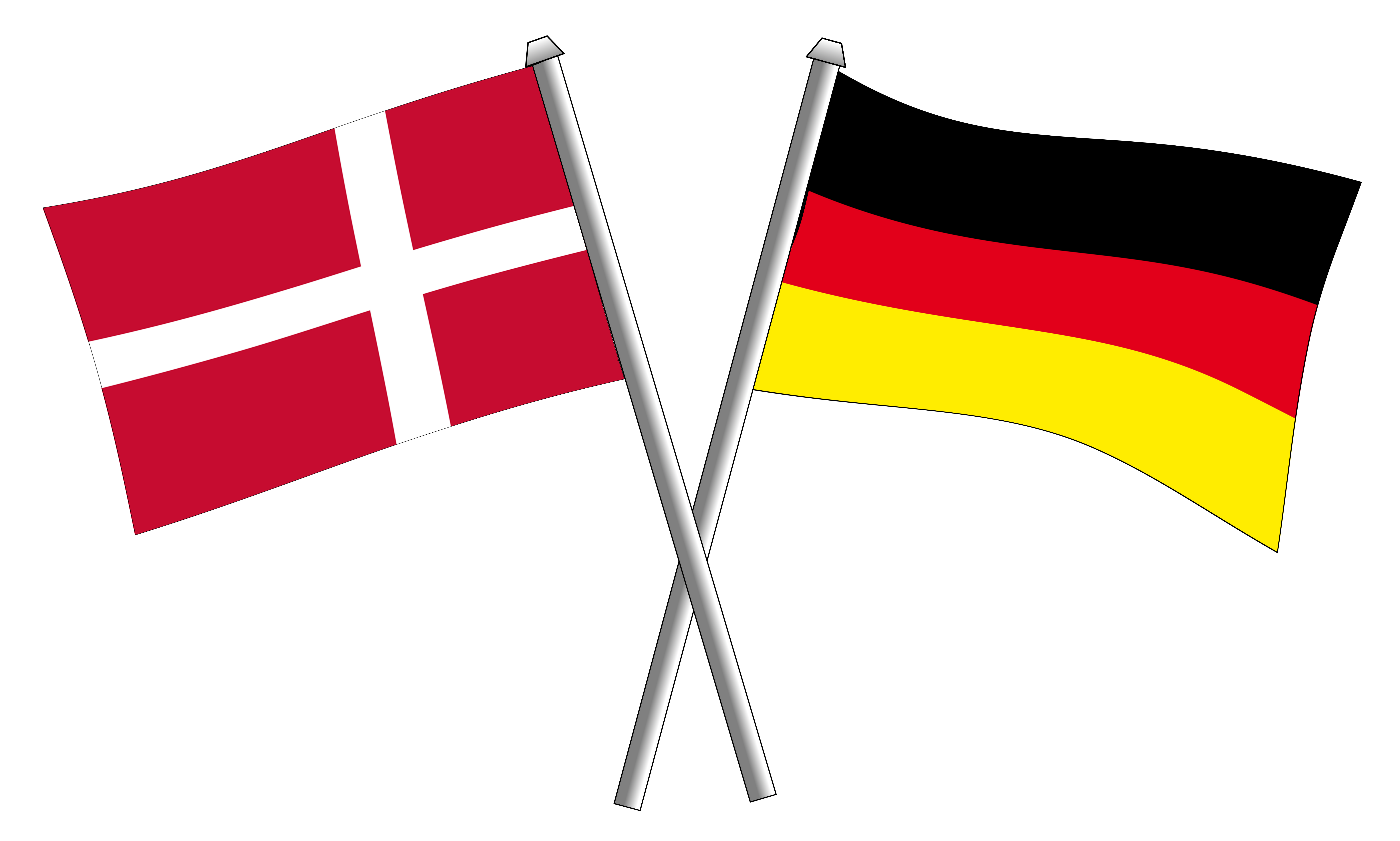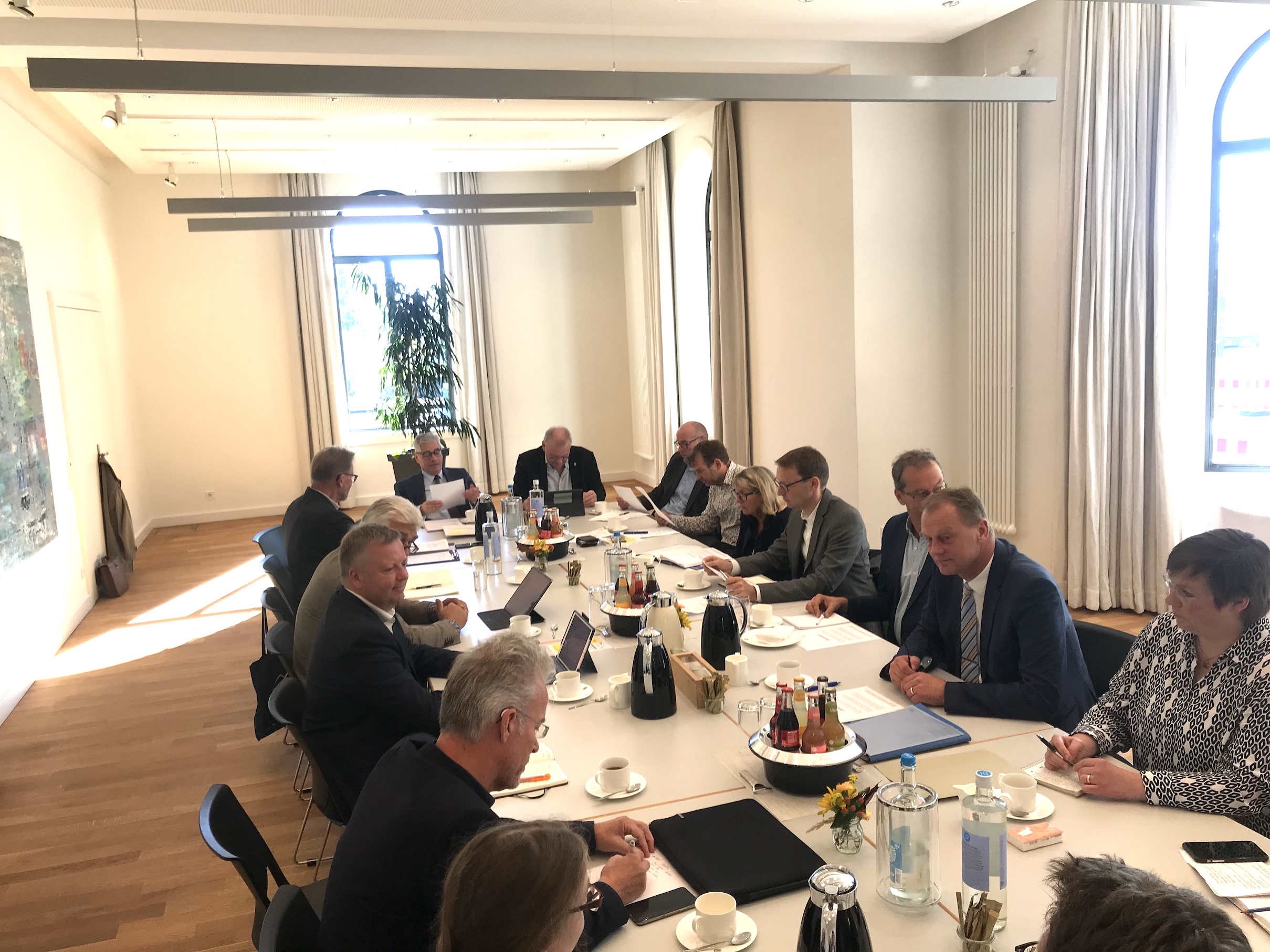
DialogForumNorden raises its voice against Danish border controls
22.09.2022Denmark’s decision to reintroduce border controls in 2016 due tot he refugee crisis was supposed to be a temporary measure. But now this state of affairs has already lasted six years. Long traffic jams and delays at the German-Danish border have therefore unfortunately been part of everyday life for many years and place an enormous burden on border commuters and residents in particular. Cross-border cooperation also suffers from the situation.
The DialogForumNorden, an association of the four national minorities and ethnic groups in Schleswig-Holstein and in Nordschleswig/Region Syddanmark, as well as politicians and organisations concerned with minority issues – including FUEN – have now presented a resolution on this issue. It states:
"DialogForumNorden supports the state government and the state parliament in steadily dismantling border barriers at the German-Danish border in order to facilitate practical cooperation and encounters between people. Commuter traffic without border controls is particularly important for this."
The signatories are in favour of abolishing permanent border controls at the German-Danish border and plead for a return to the Schengen-compliant regime before 2016 and for strengthening cross-border police cooperation.
Read the entire resolution (in German) here
According to the Schengen Agreement, there are no checks on persons at the borders in the so-called "Schengen area", to which 26 European countries, including Denmark, belong. However, after the refugee crisis, countries such as Germany, Austria, Denmark and Sweden partly reintroduced such controls. Some states have since extended the measures every six months. Denmark did so most recently in May 2022, citing, among other things, a high threat of terrorism.
Denmark has been criticised in many quarters for its continued border controls. At the political level, the Schleswig-Holstein state parliament recently spoke out unanimously and emphatically in favour of an end to Danish controls at the common border. The German Foreign Minister Annalena Baerbock (Grüne) had also criticised the continuing border controls during her visit to Copenhagen at the end of August.

The DialogForumNorden meets twice a year - this week the meeting took place in Kiel. Credit: FUEN
In addition to the resolution, the meeting of the DialogForumNorden on 19 September in Kiel also dealt with the coalition agreement of the new black-green state government in Schleswig-Holstein, which was passed in June this year. Minority issues find a gratifyingly large space in it, as Johannes Callsen, minority representative of the Minister President, reported. It states:
"We want to further expand Schleswig-Holstein's role as a European model region for minority policy. To this end, the Federal Union of European Nationalities (FUEN), the European Centre for Minority Issues (ECMI), the Minority Competence Network (MKN), the academies of the German Border Association, the "Student Ambassadors" project of the "An-Deiner-Seite" (ADS) Border Peace Association and others play an outstanding role. We therefore want to strengthen their work."
Support for the Minority SafePack Initiative (MSPI) initiated by FUEN is also explicitly mentioned in the coalition agreement – as is the plan to work at federal level for the inclusion of the protection and promotion of minorities in the Basic Law.
In Schleswig-Holstein, according to Callsen, the focus should be on Sinti and Roma as well as on regional and minority languages. The new state government has also taken up the cause of strengthening cross-border cooperation with Denmark and has appointed Johannes Callsen as coordinator for cooperation with Denmark.
Background
In the DialogForumNorden (DFN), the four national minorities and ethnic groups in Schleswig-Holstein and in Nordschleswig/Region Syddanmark as well as institutions, organisations and politicians concerned with minority issues have joined forces to inform each other and, if necessary, to take a joint position on minority issues. FUEN is represented at the DialogForumNorden by its Vice President Gösta Toft and Secretary General Eva Penzes.
Credit title image: Pixabay
PRESS RELEASES
- New secretariat in the Polish parliament supports national and ethnic minorities
- FUEN calls for the inclusion of the Ladin language at the 2026 Winter Olympic Games
- FUEN Urges UN Special Rapporteur to Advocate for a Coherent EU Minority Protection Framework
- FUEN wishes you a peaceful Christmas season, restful days and a bright, hopeful start to the new year!
- FUEN calls on the EU to act over systematic ethnic-based land confiscations in Slovakia
- Women of Minorities conference in Budapest calls for structural change to ensure equal political participation of minority women
- FUEN President Olivia Schubert at UN Forum on Minority Issues in Geneva
- "Laboratory of Peace": 28th Seminar of Slavic Minorities held in European Capital of Culture Gorica/Gorizia
- Equality in Political Participation and Representation: Third “Women of Minorities” Conference to Be Held in Budapest
- FUEN Working Group on Education discusses challenges and future of minority schooling in Europe














